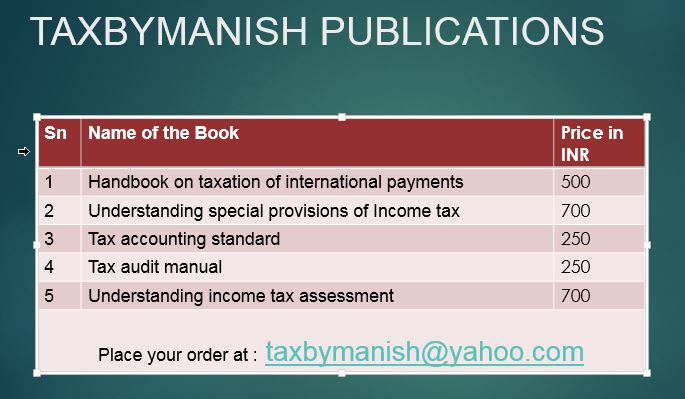UOI vs. Gautam Khaitan (Supreme Court)
Black Money Act: It is not correct to say that while exercising powers under Sections 85 and 86 of the Black Money Act, the Central Government has made the said Act retrospectively applicable from 01.07.2015. The penal provisions u/s 50 and 51 of the Black Money Act would come into play only when an assessee has failed to take benefit of S. 59 and neither disclosed assets covered by the Black Money Act nor paid the tax and penalty thereon
Sub¬-section (3) of Section 1 of the Black Money Act, itself provides that save as otherwise provided in this Act, it shall come into force on 1 st day of July, 2015. A conjoint reading of the various provisions would reveal, that the Assessing Officer can charge the taxes only from the assessment year commencing on or after 01.04.2016. However, the value of the said asset has to be as per its valuation in the previous year. As such, even if there was no change of date in sub¬section (3) of Section 1 of the Black Money Act, the value of the asset was to be determined as per its valuation in the previous year. The date has been changed only for the purpose of enabling the assessee(s) to take benefit of Section 59 of the Black Money Act. The power has been exercised only in order to remove difficulties. The penal provisions under Sections 50 and 51 of the Black Money Act would come into play only when an assessee has failed to take benefit of Section 59 and neither disclosed assets covered by the Black Money Act nor paid the tax and penalty thereon. As such, we find that the High Court was not right in holding that, by the notification/order impugned before it, the penal provisions were made retrospectively applicable
ITO vs. Citymaker Builder Pvt. Ltd (ITAT Mumbai)
S. 68 Bogus Share Capital: As the share applicant companies were controlled by an infamous accommodation entry provider, it was incumbent on the part of the authorities to have carried out an in-depth verification of the genuineness of the transaction of receipt of share application money by the assessee from the said parties. However, the authorities have not done even the bare minimum for verifying the genuineness of the transaction. Such a casual approach cannot be subscribed on our part (NRA Iron & Steel 412 ITR 161 (SC) followed)
As held by the Hon’ble Apex Court in the case of NRA Iron Traders 412 ITR 161 (SC), the A.O is duty bound to investigate the credit-worthiness of the creditor/subscriber, verify the identity of the subscribers, and also ascertain whether the transaction is genuine or was backed by merely bogus entries of name-lenders. In the totality of the facts of the case before us, we are of the considered view, that neither the assessee had discharged the obligation that was cast upon it to substantiate the identity of the subscribers, their credit-worthiness, and also the genuineness of the transaction of receipt of share application money from the aforesaid six share applicants, as per the mandate of law, nor the lower authorities had in discharge of their statutory obligation carried out the necessary verifications
Punjab Cricket Association vs. ACIT (ITAT Chandigarh)
S. 2(15)/11: Though the assessee is activity contributing towards the promotion and popularity of cricket, its activities are also concentrated for generation of revenue by exploiting the popularity of the game and towards monopolization and dominant control over cricket to the exclusion of others. The commercial exploitation of the popularity of the game and the property/infrastructure held by the assessee is not incidental to the main object but is one of the primary motives of the assessee (All imp judgements on ‘charitable purpose’ referred)
The assessee is regularly following commercial activity by commercially exploiting its property and rights to hold matches and thereby earning huge income, hence the said activity can not be said to be incidental activity rather the commercial exploitation of the match is one of the main activity of the assessee, hence, the case of the assessee ,in our view, for the year under consideration will not fall within the definition and scope of section 2(15) of the Act and thus the assessee is not entitled to exemption u/s 11 of the Act. While holding so, we do not mean that the assessee’s activity is not at all for promotion of the game of cricket. No doubt, the assessee is also activity contributing towards the promotion and popularity of the cricket but at the same time its activities are also concentrated for generation and augmentation of the revenue by exploiting the popularity of the game and towards monopolisation and having dominant control over the cricket to the exclusion of others. What we want to convey is that the commercial exploitation of the popularity of the game and the property/infrastructure held by the assessee is not incidental to the main object but is apparently and inter alia one of the primary motives of the assessee
